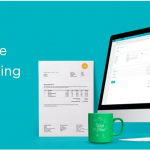5 Tax-saving Tips for Entrepreneurs

Being employed at an organization doesn’t have the costs and risks that self-employment or entrepreneurship has. For most entrepreneurs, all those risks that could adversely affect your business or might eventually lead it into the right direction going forward.
If you work for yourself, then the responsibility to get customers and generate income out of them is yours, and you must provide them with the services or products constantly. Meanwhile, you have to manage multiple expenses, employees, potential lawsuits, your telephone and internet bills, travel expenses and more, in order to get new and retain existing customers.
You need to maximize the resource usage and minimize your overall cost to enhance the profitability of your business, which means that you need to claim every tax deduction for your business.
Here are 5 Tax-saving Tips for Entrepreneurs.
1. Tax Deductions for Self-employed
This type of tax deduction alludes to employers’ share of social security and Medicare (equivalent to health insurance), which the employer is liable to pay. Every working individual must pay tax as per the income tax breakdowns of rate, which is 15.3% for entrepreneurs and 7.65% for employees.
For a working individual or an employee, the tax filing status is based on his or her monthly income as shown below:
Tax Filing Status Income Level
Single $200,000
Married (filing jointly) $250,000
Married (filing individually) $125,000
Self-employed income along with compensation is considered as the income threshold for tax calculation.
For example, if your income from the self-employed is $160,000 and your spouse earns $100,000 in wage income, then your total household income becomes $260,000. This exceeds the $250,000 threshold by $10,000 and you have to pay 0.9% extra as Medicare tax on the excess amount.
2. Home Office Expenses
To establish and operate a business regularly, a definite workspace is required, which comes under Home Office Expenses no matter whether you rent it or own it, based on its use for business operations. This is one among the deductions that you can defend during an audit. You can do this by preparing your workspace map, keeping all measurements correct, and submit it to support your deductions.
There are two effective ways to calculate your deductions: Standard and Simplified. Luckily, you are not bound to implement the same method every year going forward.
If you go with the Standard method, then you have to calculate the real home office expenses, whereas the Simplified method requires you to multiply home office square feet value to the IRS-determined rate. However, you must not be using a workspace larger than 300 square feet. Besides, no itemized deduction or depreciation related to home is considered.
3. Phone and Internet Expenses
The expenses incurred for phone and the Internet, irrespective of whether home office deduction claimed or not, can be claimed. It is recommended to claim only the expenses that relate to your business directly. For instance, if you own a phone that is used for both personal and business calls, then you should claim deduction only for the calls that relate to your business.
In contrast, 100% of expense can be claimed for a phone used for business exclusively. The same applies to the Internet expenses when used for both personal and business purposes, or in either of the cases.
4. Health Insurance Premiums
You are eligible for claim deductions on the premium payments done by you for health insurance, dental check-ups, and other long-term care insurance if any, being an entrepreneur or self-employed if not covered by your spouse’s group insurance policy issued by his/her employer.
The premiums paid by you towards the policy availed by your parents or dependents, spouse, and children below 27 years of age no matter if they’re dependent on you or not.
5. Meals
As an entrepreneur, the expenses you bear over meals as part of business meetings and client entertainment are tax deductibles. You can claim deduction max 50% of the expenses over meals that cannot be lavish or extravagant under specific conditions, in case you keep the receipts.
A deduction of 50% of standard meal allowance can also be claimed if you have the record of your business trip but not the actual receipts.
Conclusion
Sometimes, tax deductions are more complex than your expectation as described above. It has often seen that entrepreneurs don’t know whether a particular expense is eligible for tax deduction.
If you ever face a similar problem, think twice if the particular expense is in your line of business, and then go with the result.
Source: Huffingtonpost





























